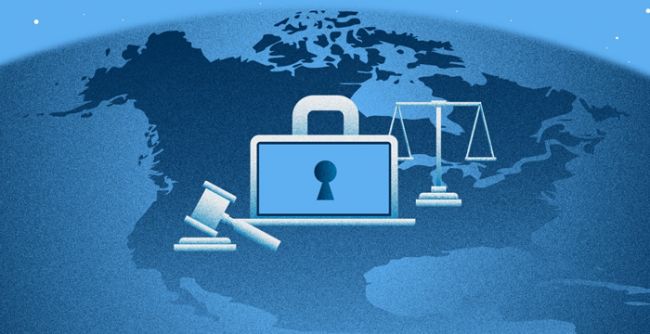Tips & Tricks
6 min read
How to Ensure Compliance with Data Privacy Laws While Sharing Files with Clients


In today’s digital world, file sharing is an essential part of maintaining business relationships, especially when it comes to client interactions. However, with the increased flow of sensitive information, businesses must ensure that they comply with data privacy laws. Failure to do so can lead to severe penalties, loss of trust, and reputational damage.
For businesses looking to streamline their processes, client portal file sharing provides an effective way to exchange documents securely. In this article, we’ll explore the steps businesses can take to comply with data privacy regulations when sharing files with clients, using a secure client portal like Titanfile.

Before diving into the best practices for file sharing, it’s important to understand the key data privacy laws that govern how businesses handle client data. Here are a few of the most relevant:
Understanding these laws and their implications for file sharing will help you ensure that your business practices are compliant and secure.
When dealing with sensitive client information, the risks of data breaches and cyberattacks are ever-present. Secure client portal file sharing solutions like Titanfile ensure that files are exchanged safely, reducing the risk of unauthorized access. Here are the primary reasons why secure file sharing matters:
Ensuring compliance with data privacy laws when sharing files with clients requires a combination of secure systems and smart practices. Here’s a list of best practices:
The best way to share files securely with clients is by using a client portal file sharing system. Titanfile, for example, offers end-to-end encryption and user authentication protocols to ensure that only authorized users can access files. A secure client portal helps avoid the risks associated with email or unsecured file sharing platforms.
Encryption is one of the most effective ways to protect data. Whether you’re sending a file through email or using a client portal, always encrypt the file before sending it. This ensures that even if unauthorized access occurs, the contents of the file will remain unreadable.
Two-factor authentication (2FA) adds an extra layer of security by requiring users to verify their identity through a second method, such as a one-time password or biometric scan. This is especially important for protecting sensitive client data.
Not all files need to be available to every user. By setting up granular permissions, businesses can ensure that only the relevant individuals have access to sensitive documents.
Security threats are constantly evolving, and so should your systems. Regularly update the software used for file sharing, and ensure that your security measures are up to date.
Most secure client portal file sharing platforms provide access logs, which allow you to track who viewed or downloaded files and when. Regular monitoring of these logs is essential for identifying any unauthorized access or suspicious activities.
It’s not enough to secure the system; educating clients on how to use the portal safely is equally important. Provide training on how they can protect their accounts and the files they upload.
In a world where data breaches are becoming more common, businesses must prioritize compliance with data privacy laws when sharing files with clients. By using a secure client portal file sharing system like Titanfile, businesses can ensure that sensitive information remains protected and that they meet the necessary regulatory requirements. Implementing encryption, two-factor authentication, access controls, and regular software updates are just a few ways to keep client data secure.
Remember, maintaining compliance with data privacy laws is not just about avoiding penalties; it’s about protecting your clients’ trust and building lasting business relationships.
By following the best practices outlined in this article, you’ll be able to securely and compliantly share files with clients, while ensuring their sensitive data is always protected.
Be the first to post comment!